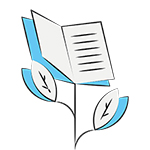Poetic Inquiry
Presenter(s): Charlotte Wetton

Poetic inquiry is an arts-based qualitative research method.
Poetic inquiry is principally a method for creating meaning from research data, such as field-notes. Generating poems from research data is a method of analysis — an alternative to conventional forms of analysis, such as thematic. The cognitive and creative process of writing the poem will force the researcher to synthesise, distil, analyse and create, thus producing new insights, compared to conventional methods of analysis.
As an arts-based method, poetic inquiry uses the literary techniques of poetry as a method of analysis and knowledge generation, for example: line breaks, imagery, metaphor, stanzas, enjambment, alliteration and narrative.
The Theory Behind the Method
The key concept of this methodology is that poetry itself offers an alternative to traditional academic epistemologies. Data analysis is a process of making sense of data — and the intrinsic characteristics of poetry mean that writing poetry from data allows a different kind of making sense for the researcher (and possibly for research participants). It also offers the research audience a different way of understanding the data, compared to academic writing. Poetic inquiry is a way to analyse and communicate that analysis. There are seven relevant characteristics of poetry:
- Ambiguity: Poetry allows for multiple interpretations of the same poem, indicating the potential multiple interpretations of data.
- Nuance: Poetry can be non-linear and hold multiple, complex, even contradictory truths in one poem — even within a line — by using techniques such as enjambment, stanzas, neologisms, elisions and puns, thereby presenting nuances in research data.
- Disruption: Poetry can disrupt established language hierarchies and provide a liberating opportunity to express experiences in new language, allowing analysis to foreground rarely-heard experiences.
- Embodiment: The poetic line and the space on the page relate to the breath. The musicality of the words is experienced, not just their meaning. Breath and musicality foreground embodied facets of data. Also, poetry uses lexicon (word choice), imagery, simile and metaphor to imaginatively and graphically portray embodied experiences.
- Use of the page: Poetry does not fill the whole page; ideas and emotions have to be conveyed succinctly, forcing the researcher to make sense of, and convey, the essence of a research topic.
- Specificity: Poetry relies on a close attention to language; lexicon (word choice) is key. In poetry, words carry not just their defined meanings, but cultural, social and etymological associations. And words are chosen for their sounds as well as for their meanings. Poetry can foreground overlooked, subtle, or hard-to-express parts of the qualitative data.
- Empathy and emotion: Reading and writing poems is an emotive act in which the reader/writer is forced to engage with the emotions and experiences of another, allowing us to draw emotions out from data.
Research projects which require these characteristics will likely be suitable for a poetic inquiry methodology. In addition, poetic inquiry methodology will likely deliver several other tangible advantages. Poetic inquiry:
summarises and synthesises key ideas
encourages reflexivity in the researcher
centres participant voice
creates interest and variety in research dissemination.
How the Method is Used
Poetic inquiry is not one strict methodological process; it is a flexible methodology which can take different forms.
It is useful to consider for what purpose poetic inquiry is being used within the project and who is doing the writing. As well as analysing data, poetic inquiry can also be used to reflect, to disseminate and even to procure data.
To analyse / produce insights
Researchers analyse focus group, interview, ethnographic or field-note data by writing poetry (sometimes called transcript poems, interview poems or field poems). Alternatively, researchers write found poems from relevant source texts or poems based on the academic literature they have read (sometimes called academic literature poems).To reflect
The researcher writes poems on their own experiences of the research project, or their own positionality, or relevant life experiences. It is thus comparable to prose autoethnographic writing and is sometimes referred to as autoethnographic poetic inquiry. Of course, this may produce research insights as well as encourage reflexivity.To disseminate
Poems are shared as a research output in articles, posters, performances etc. Participant-written and/or researcher-written poems could be shared.To procure data
The researcher analyses pre-existing poems. (Spiers and Smith, 2012) Or, poems are used as prompt materials within an interview or focus group. Or research participants are invited to write poems based on their own experiences, thereby summarising and vividly conveying their experiences; the poems are then analysed by the researcher. This is the least common form of poetic inquiry.
Using this methodology in your project might mean using poetic inquiry for just one of these purposes or more.
Summary table:
| Purpose | Who writes |
| To elicit data | Research participants |
| To analyse/ produce insights | Researcher |
| To reflect | Researcher |
| To disseminate | Researcher/ research participants |
Methodological Options with Poetic Inquiry
Poetic inquiry is often used alongside other social research methods e.g. interviews, CDA, narrative inquiry, collage, participant observation etc.
Poetic inquiry has scope for collaboration. Poetry can be written collaboratively with research participants and / or with other researchers to create meaning and to sense-check. Researchers can also collaborate with professional poets.
Exercising Caution
Poetic inquiry is probably not suitable for a research project in which research results are binary and need to be communicated to audiences without ambiguity.
An issue within poetic inquiry is the literary quality of the poetry. When using any arts-based research method, the quality of the artistic product (e.g. the craft, structure or creativity), is important. The credibility, depth, and respect for the research can be diminished if the artistic aspect is weak, even if the data or research insights themselves are valuable. (Piirto, 2002)
One cannot assume that the use of poetic inquiry makes a research project more inclusive, radical or ethical. Ethical issues of inclusivity and power imbalances still need to be considered.
Some research participants and research audiences may find poetry interesting, fun and discursive, yet others may find poetry off-putting, confusing or even elitist. Again, the methodology doesn’t supply guarantees.
About the author
Dr Charlotte Wetton is a poet and a tutor at Manchester Metropolitan University. She completed her PhD in 2024 at the University of Manchester. Her creative thesis is ‘Workforce’ a poetry collection on labour and landscape, based around interviews with workers. Her first poetry pamphlet ‘I Refuse to Turn into a Hatstand’ won the Michael Marks Award 2017. Her second poetry pamphlet ‘Accessioning’ is out with The Emma Press.
- Published on: 19 May 2025
- Event hosted by: Manchester Metropolitan University
- Keywords: Interpretivism | Arts-based methods | Autoethnography | Dissemination through Poetry | poetic inquiry | qualitative research | data analysis | embodiment | reflexivity |
- To cite this resource:
Charlotte Wetton. (2025). Poetic Inquiry. National Centre for Research Methods online learning resource. Available at https://www.ncrm.ac.uk/resources/online/all/?id=20857 [accessed: 7 December 2025]
⌃BACK TO TOP


